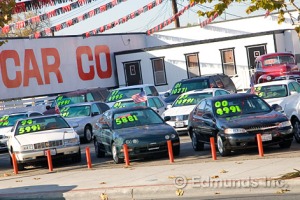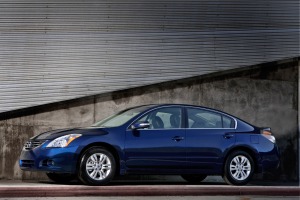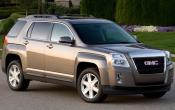
Something goes wrong with your car and you're faced with another high repair bill. This isn't the first time it's happened, and you're getting tired of pouring money into an aging machine. It would be nice to get a new car, but is that the smartest decision? Would you be better off fixing your current ride, or is it really time to buy a new one? The answers to these questions will vary, but we can show you several sides of the issue to help you make a more informed decision.
The Costs of Wear and Tear
Even if you take good care of your car, some-high priced repairs are unavoidable. Wearable items such as axle boots and brake rotors eventually need to be replaced. One of the more expensive repairs on a high-mileage car is the timing belt. On many cars, it needs to be replaced at around 100,000 miles. Most dealers recommend that a person also replace the water pump and the other drive belts in the car at this point. This "timing belt package" can cost between $600 and $1,000. Problems like this often begin to surface between 90,000 and 120,000 miles.
"It's around this time that people decide what they'll do with the car [in the long term]," said Marc Uchuiyama, assistant service manager at Honda of Santa Monica. "Is it going to be a hand-me-down to your kids? Do you want it to last until you get married?"
Arguments for Fixing Up
Buying a new car may not be on your radar at this point. If you aren't sure if fixing it is the right thing to do, here are a few reasons why it is a good idea to bite the bullet and get the repairs done.
- It is almost always less expensive to repair a car than buy a new one.
- Although something as severe as a blown motor or failed transmission will run you between $3,000 and $7,000 to replace at a dealership, it still isn't enough to buy a new car. (It would certainly make a nice down payment, but then there are the monthly payments to consider.)
- Insurance and registration fees will go up with a new car.
- A new car typically loses an estimated 20 percent of its value the moment you drive it off the dealer lot. Your existing car has already taken that depreciation hit.
- You need the car to last for a year or two longer. In 2008, the average person kept his car a little more than five years before trading it in. Let's say your car broke down earlier than expected. You were planning on getting a new car in about a year or two. Repairing it now will keep you on the road and not force you into a hasty new car purchase. It'll also give you more time to save up and get your finances in order.
- You have a sentimental attachment to your car. Maybe it was your first car, a gift from a loved one or a dream car you finally were able to purchase. For you, buying a new car means giving up an old friend.
Arguments for Buying New
After that last trip to the dealership, you swore you wouldn't put another penny into your old car. But buying a new car seems like an intimidating prospect. Here are a few reasons why buying a new car might be the way to go.
- You don't want to worry constantly about future breakdowns. In our CarSpace Forums, a reader likened a high-mileage car to a 40-year-old pitcher for a baseball team: His arm could go out in one pitch. And repairing one thing doesn't guarantee that another breakdown won't happen down the line. If you buy a new car, you'll have at least three years — often far longer — before you have to worry about paying for any major repairs, and some new cars come with free standard maintenance as well.
- You're tired of the back-and-forth to the repair shop. Some things are fixed the first time 'round, while others seem to need constant attention or do not get fixed right the first time. Either way, trips to the mechanic are costing you too much time away from work or family in addition to money.
- You're tired of your old car. Perhaps it embarrasses you, it rattles like crazy or you have to bang on the A/C to get it working. Every morning when you walk outside and see the neighbor's car, you long for something new. That's perfectly normal. Just take a good look at your budget and make an honest assessment of your financial situation. Let our payment calculator do the math for you.
- You want something safer. New cars come with more advanced safety equipment. Features like side airbags, tire-pressure monitors and electronic stability control are increasingly becoming standard fare on new vehicles.
When Is It Time To Buy Another Car?
A good rule of thumb to estimate when it's time to throw in the towel is if the cost of repairs is greater than either the value of the vehicle (check its True Market Value (TMV®) here) or one year's worth of monthly payments.
When the time comes, buying a used car is (almost) always a more cost-effective option than buying new, largely because you avoid the big depreciation hit. Just keep in mind that another used car could come with its own set of issues. Visit our used car center to search the listings, or check out our Used Car Best Bets for help in narrowing your used car search.
Other Factors To Consider
If you are not yet faced with making the tough decision to fix or trade your vehicle, there are steps you can take to prevent or avoid high-priced repairs.
- Get your new car maintained at its proper intervals to avoid problems and breakdowns. Use our maintenance tool to learn the recommended service intervals for your vehicle. Maintaining a much older car means paying close attention to items that commonly break down. (See "Broke with a Beater.") Use our maintenance articles to help make your car run forever.
- You might consider purchasing an extended warranty. If you plan on keeping the car for a long period of time, this can be a great way to save money and have peace of mind. A $3,000 repair for a new transmission isn't as intimidating when you only have to pay $200 for the deductible plus a small monthly fee. Remember that extended warranties are negotiable.
- If you're experiencing issues with your car and don't know whether things are likely to get worse, "Look for advice on message boards and forums," said Loren Wong, associate business analyst for Edmunds.com, formerly a warranty administrator for Acura and BMW. "Most likely, other people have gone through the same problems." You can benefit from others' experience and see what types of problems are associated with your vehicle as it ages.
A Final Bit of Advice
Everyone seems to have his own theory of when to repair a car and when to get a new one. But you know your needs and your car's history better than anyone else, so use our tips to review your options. Buying a new car might seem like the easy way out of a high repair bill, but it may not be the best financial decision depending on your circumstances.
Still, if you can take advantage of the high incentives and rebates being offered on new cars today, you may find some pleasant surprises. You can't put a price on the peace of mind that a new car brings. If you decide it's time to junk your clunker, you want it to be on your terms and not when the car breaks down.









